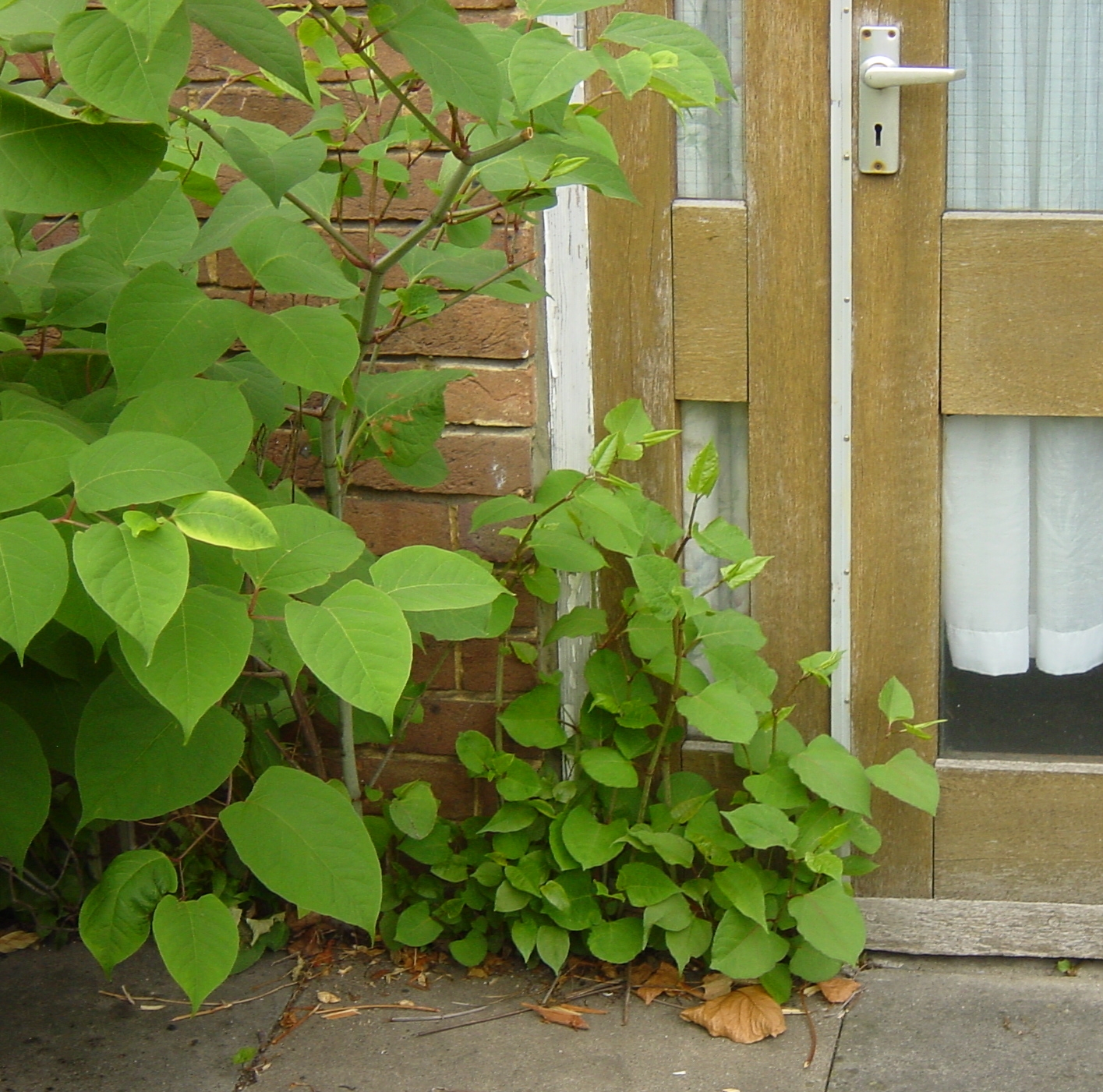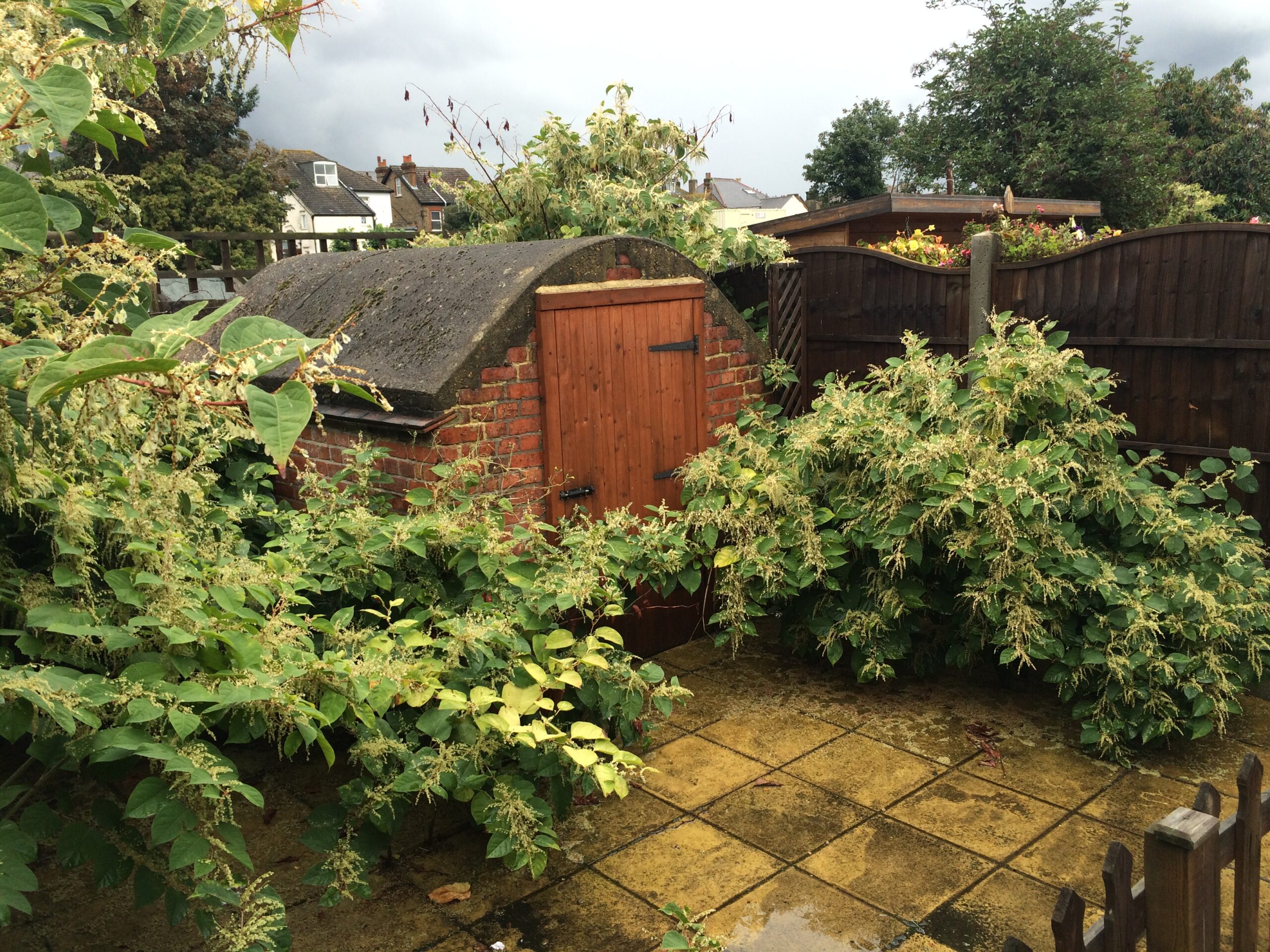Japanese knotweed doesn’t need to be a dealbreaker
Japanese knotweed doesn’t need to be a dealbreaker, as honest and upfront approach enabled London homeowner to successfully sell their home with historic knotweed infestation.
Homebuyers and sellers are taking an increasingly pragmatic approach when confronted with Japanese knotweed, meaning it’s no longer the dealbreaker it once was, reports invasive plant specialist Environet. As the plant continues to spread across the country, now affecting almost a million households, people are becoming better informed about how to identify knotweed, deal with it effectively and preserve property values when they come to sell.
Awareness of Japanese knotweed now stands at 82% compared to 77% in 2021, according to research carried out by Environet with YouGov. RICS revised its Japanese Knotweed Guidance for surveyors in March 2022, scrapping the notorious ‘7 metre rule’ in favour of a more nuanced approach which takes into account impact on the use and enjoyment of gardens as well as the risk of damage to property, while still recognising the very real threat knotweed can pose.
As the property market switches from a seller’s to a buyer’s market, the potential for price reductions is greater, but if homeowners tackle knotweed correctly and are upfront from the start, any reduction in value can be minimised.

Credit: Environet
Suzannah Harrison and her husband sold their 2-bedroom flat near Finsbury Park in North London last year, aware that a past knotweed infestation in the back garden could cause issues. They had attempted to treat the problem themselves, but the plant kept returning each spring. Before marketing their home, they instructed Environet to carry out a professional survey and remove the plant, providing an insurance-backed guarantee for ten years.
Suzannah commented:
“The knotweed had been present when we bought the property, but the seller didn’t declare it and ended up compensating us privately after the purchase had completed.
“It was an unpleasant and stressful experience which we didn’t care to inflict on our buyers when we came to sell, so we were upfront and honest from the start.
“We made sure we had a professional management plan in place, including an insurance-backed guarantee, to reassure people which meant that we had very little problem selling for the price we wanted.
“We didn’t advertise the fact the property had had knotweed, but once a potential buyer showed interest, that was when our estate agent brought it up. We also ticked the box on the TA6 Seller’s Information Form, stating it had been present.
“Knotweed is so widespread now that as long as it’s properly treated with the appropriate guarantee, you shouldn’t have to knock the price down significantly.
“We found a buyer pretty quickly and they didn’t beat us down on price as we’d already paid for the treatment.
“They were reassured by the paperwork and as long as the 10-year guarantee could be transferred to them, which it could, they were happy to proceed.
“I’d advise anyone in our situation to just be honest and get everything sorted before you go to market. It doesn’t need to be a deal-breaker.”
Japanese knotweed can be managed through physical removal, which is instant, or herbicide treatment over two or three years. Herbicide treatment should only be considered a control method, as it’s impossible to tell if the entire underground rhizome system has been killed or merely induced into dormancy. Knotweed can cause damage to homes if it’s growing very close, enabling it to force its way into cavity walls and drains, but it more commonly impacts gardens, patios, outbuildings, paths, and driveways. Most mortgage lenders require a professional treatment plan in place with an insurance-backed guarantee before they will offer a loan on an affected property.

Credit: Environet
Due to the unseasonably mild weather currently, Japanese knotweed could emerge from the ground as early as February, as it did last year, so homeowners and buyers should be extra vigilant for signs of the plant’s asparagus-like spears emerging over the next few weeks.
Nic Seal, Founder and MD of Environet, said:
“There are plenty of horror stories out there but with professional help knotweed can be dealt with and, in most cases, the property value can be restored to close to its original value.
“In the current market, sellers will want to do everything they can to ensure their property is saleable so once they find a buyer, the transaction can proceed smoothly.
“Honesty really is the best policy and I’d urge anyone selling a home that’s affected by knotweed to be upfront from the start and ensure a proper treatment plan is in place with an insurance-backed guarantee.
“That will give them the best chance of ensuring they keep their sale on track.”
Top tips for selling a property affected by Japanese knotweed:
-
- Commission a Japanese knotweed survey immediately to determine the extent of the problem.
- Put a professional treatment plan in place before marketing the property. Don’t be tempted to try and treat the knotweed yourself first, as this is unlikely to be successful and will make professional treatment afterwards more difficult.
- Insist on an IBG (insurance-backed guarantee) for the work, which protects the homeowner and lender even if the knotweed company goes bust.
- Be upfront and honest with potential buyers from the start, providing copies of the paperwork.
- Always declare the presence of knotweed on the TA6 Property Information Form, completed by all sellers as part of the conveyancing process, to protect yourself from the risk of a future legal case.
- If you’re unsure whether a property is affected by knotweed, find out for certain with a JustCheck™ survey before ticking ‘No’ to the question on the TA6 form.
Take advantage of Environet’s FREE Webinar – How does Japanese knotweed affect property sales:
-
- Date: 21 March 2023
- Time: 11:00 a.m.
- Duration: 1 hour
- Registration: Book your free place today!
Kindly shared by Environet UK
Main article photo courtesy of Pixabay
















